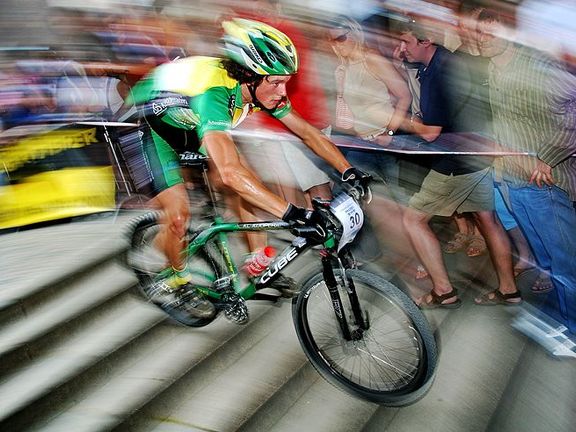Brno - When Karl Drais constructed the first bicycle in 1817, it looked more like a funny scooter. It took more than 40 years to add pedals to it and a velocipede emerged. What initially looked like a strange toy became an important means of transport.
However, most Czechs don´t automatically see bicycle as a means of transport. That was the conclusion of Bike Conference at Sport Life fair in Brno last Thursday.
"Czechs see bicycles as something they use in their leisure time. According to public opinion, bicycles are used as means of transport mainly by poorer social strata, pensioners, workers or students," claims the chairman of the Czech Bicycle Dealers Association (ASPK) Petr Kohoutek.
Only 15% of Czech cyclists commute to shops, work and school by bike. Others use bicycles only for short trips, to keep fit or as a part of recreational activities.

Infobox
Czech Cyclists
- 15% of people use bikes to commute to shops, work and school
- 45% of people go on shorter bike trips
- 25% of people see bikes as a part of their lifestyle, it is their main hobby
- 8% of people use bikes for long-distance trips; you can tell by bags attached to the carrier rack for example
- 5% of people are athletes
- 2% of others use bikes for example at work
Bikes Sold in 2006
- 50% - cross and trekking bikes
- 35% - mountain bikes
- 10% - bikes for children
- 3% - citybikes
- 1% - road bikes
- 1% - special bikes
Source: ASPK
Czechs prefer versatile cross bikes
The prevailing perception of bikes as a sports gear also affects the sales numbers. Czechs are a real force among Europeans when it comes to purchasing the so-called cross bikes.
They make up 45% of all bikes sold in the Czech Republic. In other parts of Europe, people hardly buy them at all.
As opposed to this, urban bikes comfortable and robust models with a smaller number of gears are only rarely picked by customers. "We sell only about 3% of these, while in the rest of Europe it is much more," estimates Kohoutek.
In the Netherlands, they sell up to 59% of the so-called citybikes. It is 25% in Germany, 26% in Switzerland and 19% in France. On the contrary, Austrians are more like Czechs. Only 6,5 % of all bikes sold there are the citybikes.
Environmental activists, more than anybody else, would like to see bikes return to cities again. Minister of the Environment Martin Bursík believes people would ride bikes in the streets if these were better suited to biking.
In the streets of Vienna for example, you can rent a bike by inserting your credit card into a card machine and next time you just use the given code. The first hour is for free, then you pay one euro per hour.
The system is used by a million people a year. In Berlin, they have a similar system using mobile phones.
Prague (nearly) gets a fail mark
Prague councillor and active cyclist Petr Štěpánek is optimistic about the future of bikes in cities.
READ MORE: Prague belongs to bicycles. For a day
"In the past, cycling in Prague used to be seen as a recreational activity, an entertaining weekend activity or as a form of relaxing after work. We have started to call it a means of transportation," said Štěpánek.
He has a track record to prove it. The first bike trail leading from the outskirts of Prague right to its centre came into being largely thanks to his being so passionate about it. "The future of cycling lies in citybikes. It will come back to where it all began," Štěpánek enthuses.

Jan Lipold, a regular user of the said bike trail from Zbraslav along the Vltava river to the city centre, says that whenever he doesn´t need his car, he heads for work on bike.
"Being an environmentally aware person, its saves me from feeling guilty," says Lipold, half-jokingly.
If he was to mark the quality of biking in Prague on a scale from 1 to 5, one being the best, he would give it somewhere between 4 and 5.
"It is obvious that Prague will never be like Pardubice, where the terrain is flat," says Jan Lipold. "Yet the situation is slightly improving. However, if there was to be an extensive network of bike trails in Prague, it would cost billions of Czech Crowns," he adds.
